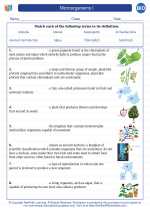Aquifers: Definition and Function
An aquifer is an underground layer of water-bearing rock or sediment that stores and transmits groundwater. It is a crucial component of the water cycle and serves as a natural reservoir for freshwater. Aquifers play a vital role in providing water for agricultural, industrial, and domestic use.
Types of Aquifers
There are two main types of aquifers:
- Unconfined Aquifer: An unconfined aquifer is a layer of permeable rock or sediment that is not covered by an impermeable layer. It is directly connected to the surface and is recharged by precipitation.
- Confined Aquifer: A confined aquifer is a layer of permeable rock or sediment that is sandwiched between two impermeable layers. It is under pressure and can store a large amount of groundwater.
Formation and Recharge of Aquifers
Aquifers are formed over long periods of time through the process of sedimentation and geological activity. They are recharged primarily by precipitation, where water percolates through the soil and rock layers to replenish the groundwater reservoir. Human activities, such as excessive groundwater pumping and land development, can also impact the recharge rate of aquifers.
Importance of Aquifers
Aquifers are essential for sustaining ecosystems and providing a reliable source of freshwater for human consumption. They also influence surface water bodies, such as rivers and lakes, by contributing to base flow and maintaining water levels during dry periods.
Studying Aquifers: Key Concepts
When studying aquifers, it's important to understand the following key concepts:
- Porosity: The percentage of open spaces within a rock or sediment that can hold water.
- Permeability: The ability of a rock or sediment to transmit water through its pore spaces.
- Water Table: The boundary between the unsaturated zone above and the saturated zone below, where groundwater is found.
- Groundwater Flow: The movement of water within an aquifer, influenced by factors such as hydraulic gradient and aquifer properties.
Human Impact on Aquifers
Human activities, including over-extraction of groundwater, contamination from industrial and agricultural sources, and urban development, can have detrimental effects on aquifers. Understanding the sustainable use and management of aquifers is crucial for preserving this vital resource for future generations.
.◂Biology Worksheets and Study Guides High School. Microorganisms I

 Worksheet/Answer key
Worksheet/Answer key
 Worksheet/Answer key
Worksheet/Answer key
 Worksheet/Answer key
Worksheet/Answer key
 Vocabulary/Answer key
Vocabulary/Answer key
 Vocabulary/Answer key
Vocabulary/Answer key
 Vocabulary/Answer key
Vocabulary/Answer key
 Vocabulary/Answer key
Vocabulary/Answer key
 Vocabulary/Answer key
Vocabulary/Answer key
